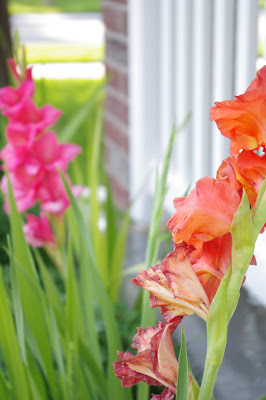
I have a friend that I have only recently come back into contact with. We were closer when we were younger but as life shifted, our contact slipped. Thanks to social networks and blogging, we have been able to see what each others lives have become so far. I really admire her for her strength and faith and courage, for it took great courage to share her experience with us. She wishes to remain anonymous but I know that you can also see her kind heart and strength of character as you read about her experience.
When I was introduced to this blog, I was quickly drawn to the “We Are Women” book’s beneficiaries. Let me tell you why.
Excitement
My water brakes - our baby boy is coming! We head to the hospital and are so excited to meet our infant. I can almost feel what it will be like to hold him for the first time.
Detour
No. No. No. Tears start to well up - this isn’t how my story is supposed to go. Where is the doctor? Why are there so many nurses in here? Where are they taking my baby? I tell my husband to not let him out of his sight. My thoughts are with my boys but my body is not, I feel myself start to get dizzy.
14 Hours Later
I still haven’t held my baby. I tried to visit him in the NICU, but I got nauseous and almost fainted while they were wheeling me in. I am losing a lot of blood and sometimes feel gushes of horrible-smelling air when I try to sit up or walk.
Peace in the Storm
Finally - I hold my baby for the first time at 4:00 A.M the next day. My body hurts so badly I can barely sit down, but I don’t care, I take in the moment. My baby is in my arms.
Confusion
The air thing is getting worse. I can barely move anywhere without it flowing out. This can’t be normal. I call my doctor. He tells me that in his 30 years of delivering babies he’s never seen something like this first hand. He apologizes and tells me this can sometimes happen with 4th degree episiotomies. He can’t help me. He tells me to wait the weekend and see a specialist on Monday. Wait the weekend? Like this? How? I need to be seen now. I go to the E.R., but my body is too sore and my wounds too fresh to examine. I’m given antibiotics. Pray. Wait. Pray again. Monday can’t come soon enough.
Some Answers
The colorectal specialist can see the problem: the beginning of a fistula. He tells me that this is common in Africa and can also happen to women who have 4th degree episiotomies. Deep breath. He tells me to wait it out. There is a chance that I can avoid surgery and that my body can heal on its own.
Embarrassment
I wait weeks. I can’t go anywhere without a foul odor accompanying me. Uncontrollable gas and who knows what else flows randomly throughout the day. My body is out of control. I ache constantly. My mind is consumed with fear and worries. More deep breaths. I long to be happy and wish I was enjoying this time of my life. My heart is heavy. My husband’s love, my son’s countenance, and my faith in God and His Son push me to keep going.
Hope Comes with Healing
Second appointment with the specialist: it’s getting smaller! I breathe a sigh of relief. I’m not out of the dark yet, but there is light. There will be more follow up appointments. Life begins to be a little more normal each day. I continue to have appointments. I hold my breath after each exam as I wait for the report. Good news is followed by better news. My body is healing on its own - I don’t need surgery. Prayers are answered. I am relieved.
Today
Putting my thoughts down has been painful and healing at the same time. My experience with the fistula has been one of the most frightening and traumatizing things I’ve experienced. My compassion and respect for women who are affected by fistulas have increased. I recognize that many women have not had as happy an ending as I have. I am grateful to share my story and hope that it can raise awareness about this worldwide issue.
If you would like to learn more about Fistula, you can see a brief explanation here or visit the website for the Campaign to End Fistula here. Also, all the proceeds from the We Are Women book go to the Campaign to End Fistula, to help train doctors in prevention and care of women who experience it and it goes toward the $300 treatment for those who have it.
Obstetric Fistula is something that affects women everywhere. Thank you, dear friend, for sharing your experience and making this issue more personal and real for us.





2 comments:
This is beautiful. Thank you so much for your insights!
oh my goodness! this story is incredible. it's so rare to see this in the US - i've never even heard of anyone who got fistula from childbirth in the US (some from hysterectomies, but then they repair them almost immediately). it's such a tragedy, and i'm so happy to hear your body found a way to heal itself! what an incredible experience, and how much empathy you must now have. incredible, incredible!
Post a Comment